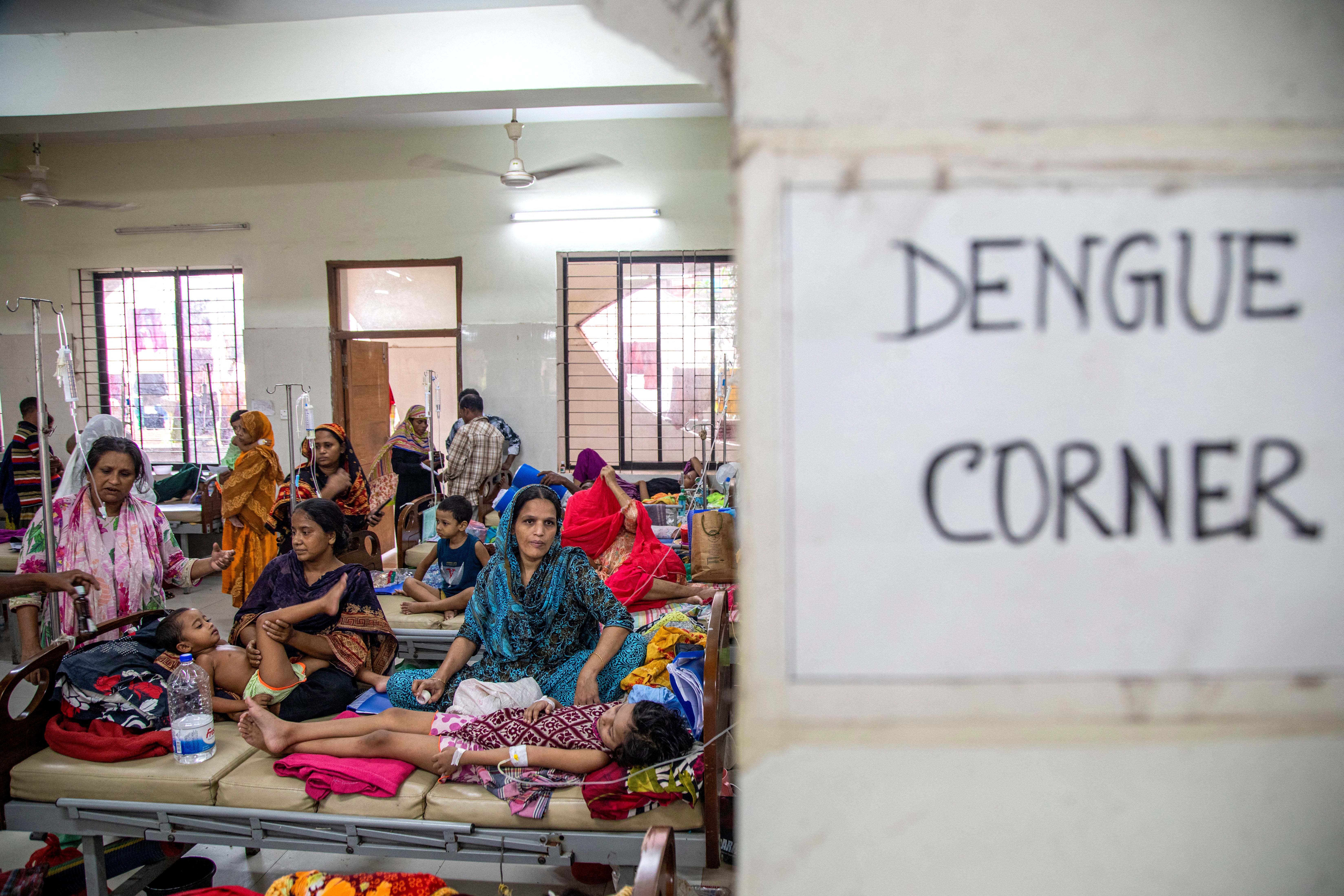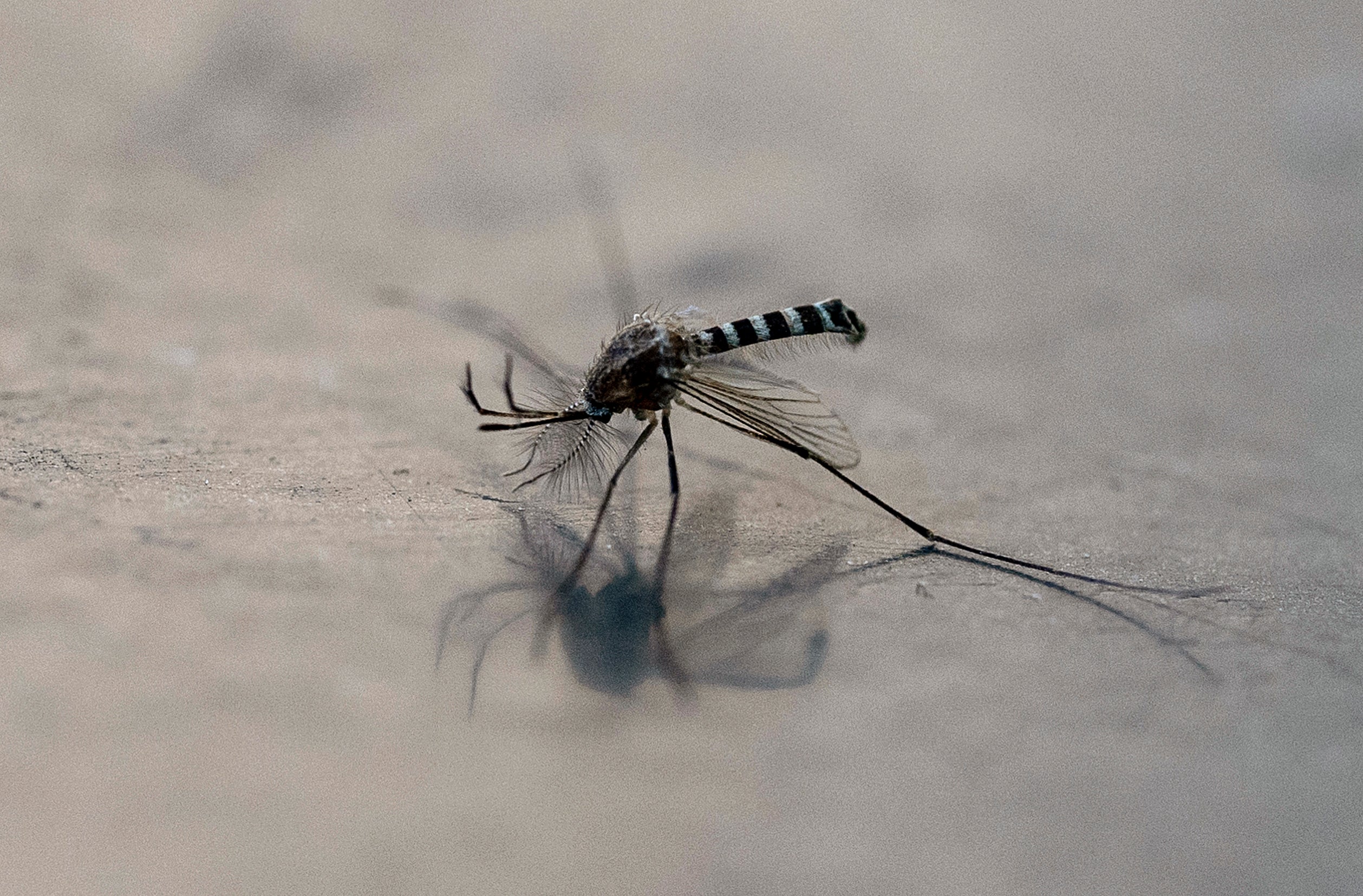Bangladesh has recorded 101 deaths from dengue fever so far this year, with public health experts warning the mosquito-borne disease could surge sharply in the coming weeks.
Official data from the Directorate General of Health Services show 24,183 confirmed cases since January, including 448 hospital admissions in the 24 hours to Sunday. The latest fatalities include two in Dhaka and one in Chattogram.
Nineteen people died in the first 10 days of August alone, following 41 deaths in July, more than double June’s toll of 19. Hospitals in Dhaka and other major cities are under pressure, while rural facilities with limited intensive care capacity are also struggling.
“The situation is critical. The virus is already widespread across the country, and without aggressive intervention, hospitals will be overwhelmed,” Prof Kabirul Bashar, an entomologist at Jahangirnagar University, told Reuters news agency. “August could see at least three times as many cases as July, with numbers potentially peaking in September.”

He urged nationwide mosquito-control drives involving fumigation, community clean-up, and removal of stagnant water, a breeding ground for Aedes mosquitoes, the carriers of dengue virus.
Experts say a combination of warm, humid weather, intermittent rainfall, and climate change has created ideal conditions for the insects to breed and spread the disease.
In addition to the hotspot of Dhaka, large numbers of cases are being reported in Barishal, Chattogram, Khulna, and Rajshahi divisions.
Many critically ill patients from rural areas are transferred to Dhaka hospitals but often arrive too late for effective treatment.
Key facts about dengue
Dengue is a viral infection transmitted through the bite of an infected mosquito. The WHO says nearly half of the world's population is now at risk of dengue with an estimated 100-400 million infections occurring each year.
- Dengue is found in tropical and sub-tropical climates, mostly in urban and semi-urban areas
- While many dengue infections are asymptomatic or produce only mild illness, the virus can occasionally cause more severe cases and even death
- Prevention and control of dengue depend on vector control. There is no specific treatment for dengue but early detection and access to proper medical care greatly lower fatality rates
Dr HM Nazmul Ahsan, associate professor at the Shaheed Suhrawardy Medical College Hospital in Dhaka, said a rising number of deaths were linked to the Expanded Dengue Syndrome, a severe form of the illness known to damage vital organs such as the liver, brain, heart, kidneys, and the central nervous system.

“These patients can deteriorate rapidly and die suddenly due to severe complications,” he told the Daily Star, noting that people with conditions like hypertension, diabetes and chronic lung or kidney diseases were particularly vulnerable.
Symptoms of dengue
Common warning signs include severe abdominal pain, difficulty breathing, bleeding, extreme weakness and a sharp drop in urination or platelet count. Dr Ahsan advised immediate hospital admission for such symptoms and early admission for the elderly, pregnant women and those with underlying health issues.
Public health expert Dr Mushtaq Hussain called for restructuring dengue care into primary, secondary and tertiary levels, and for strengthening district hospitals so that only stabilised critical cases were referred to Dhaka.
He also recommended expanding access to affordable testing, more blood collection centres, and improved secondary care to reduce the burden on major city hospitals, the Daily Star reported.
Bangladesh’s deadliest year for dengue was 2023, when 1,705 people died and more than 321,000 were hospitalised. In 2024, there were 575 deaths and over 101,000 cases.
Authorities fear this year’s outbreak could rival or exceed those numbers unless preventive measures are intensified.
Thousands to rally in Bangladesh one year after Sheikh Hasina’s fall
Pakistan cuts mobile and internet services in bid to contain Balochistan insurgency
Body of man missing for 28 years discovered in glacier
Afghan women secretly go online for education amid Taliban crackdown
Two years behind bars: Imran Khan’s party to approach UN over former PM’s ‘torture’
Mystery of country’s most expensive airport that has no planes or passengers







